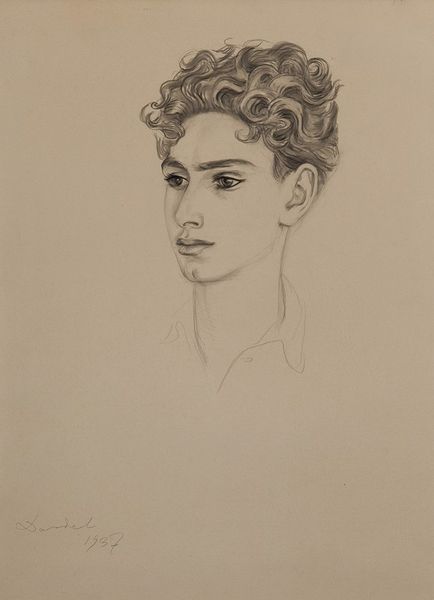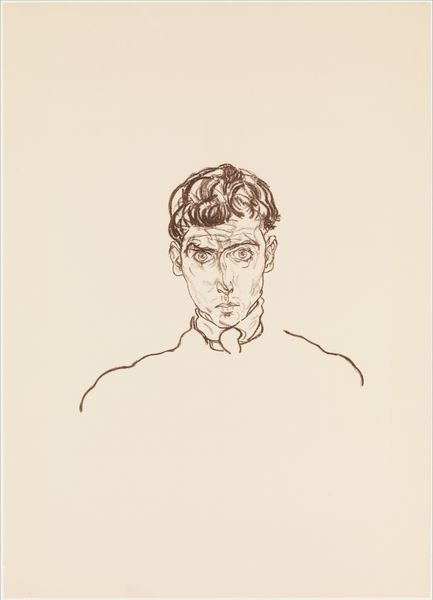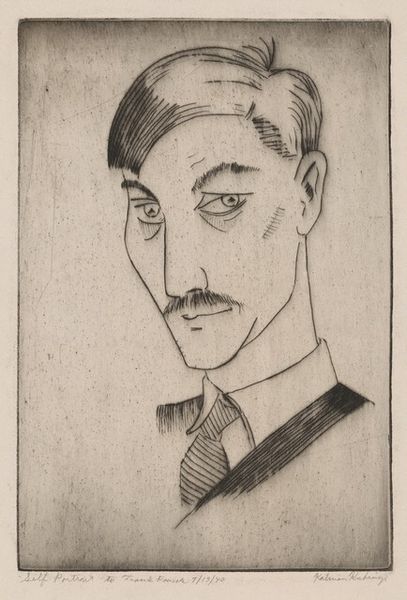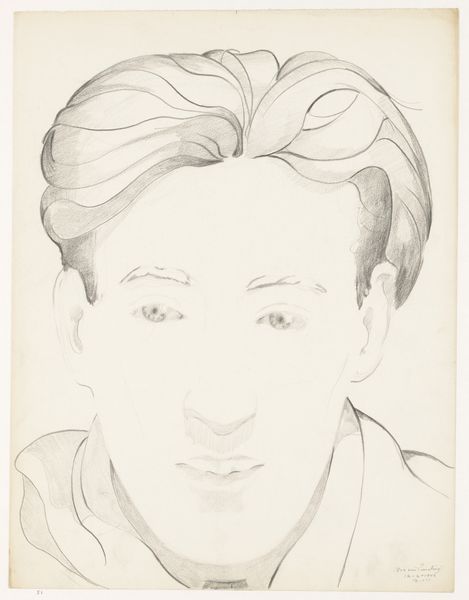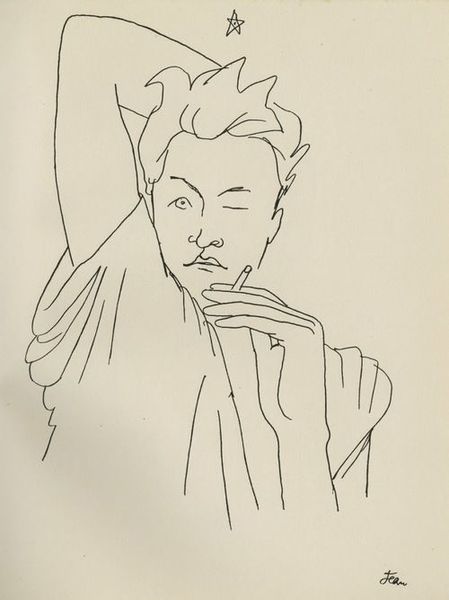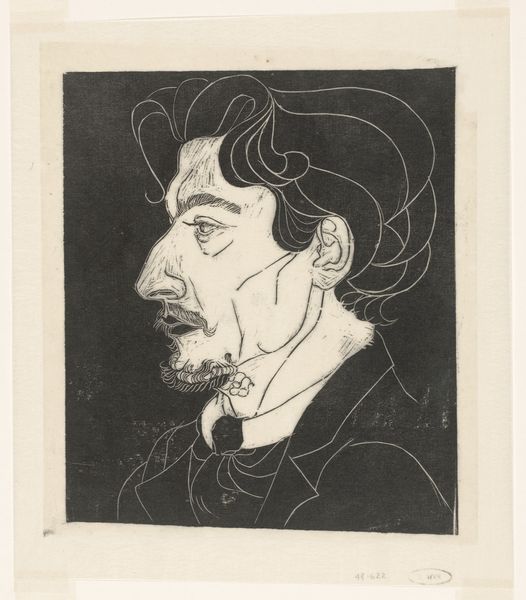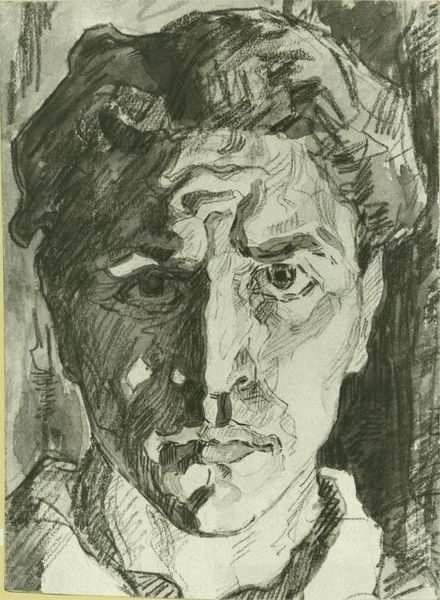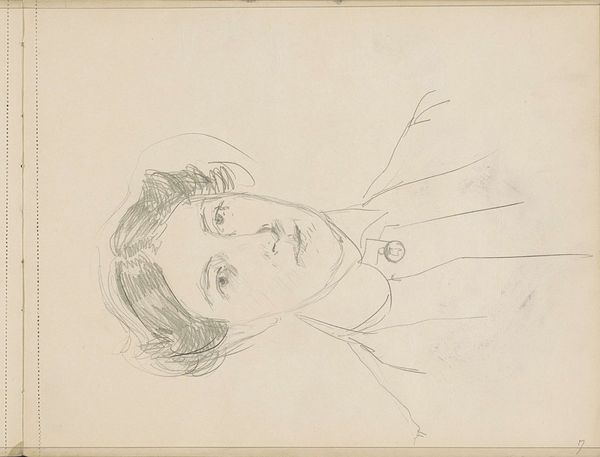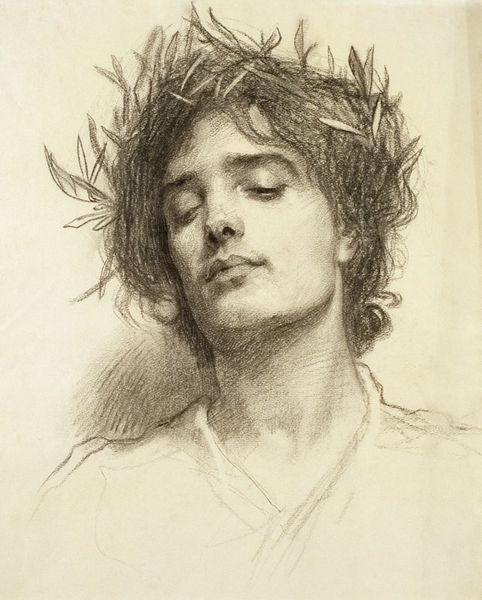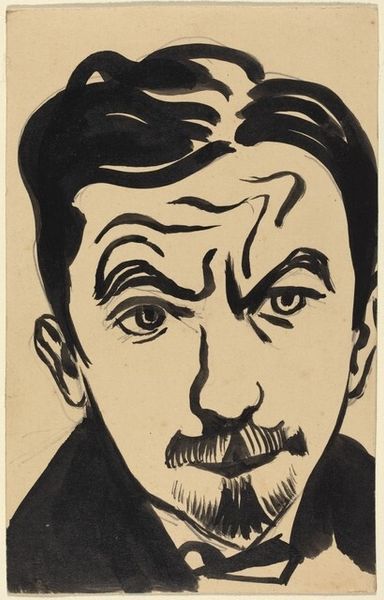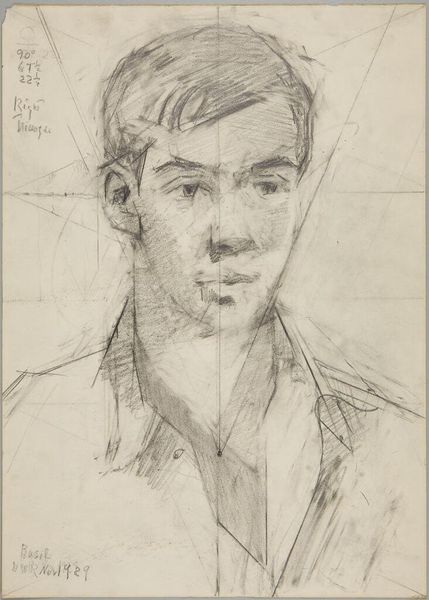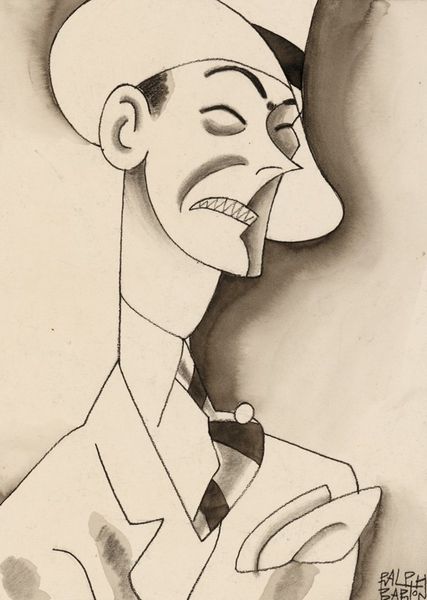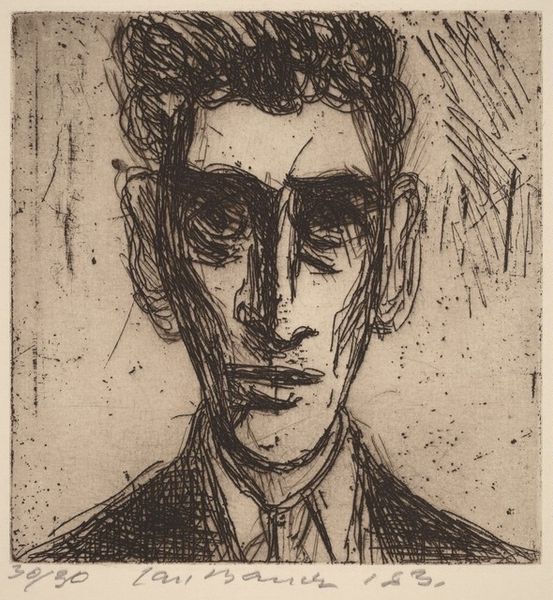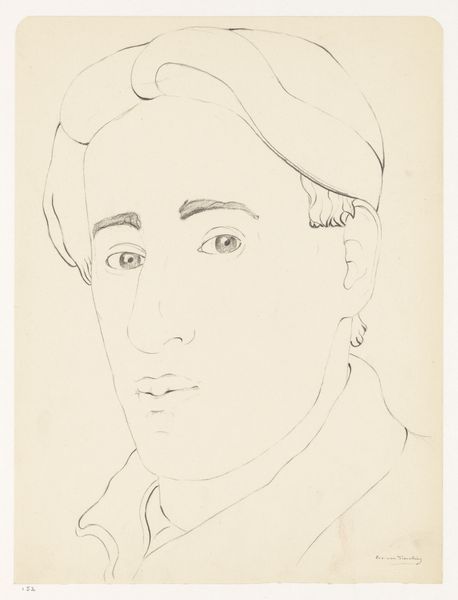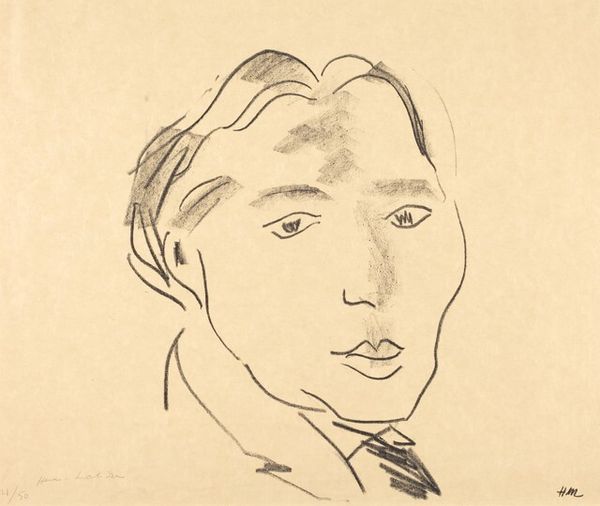
photography, gelatin-silver-print
#
portrait
#
portrait
#
photography
#
gelatin-silver-print
#
modernism
#
realism
Dimensions: image: 11.9 × 9.4 cm (4 11/16 × 3 11/16 in.) mount: 25.5 × 19.2 cm (10 1/16 × 7 9/16 in.)
Copyright: National Gallery of Art: CC0 1.0
Curator: Right now, we're looking at Minor White's "William LaRue, Cape Meares, Oregon" from 1961. It’s a gelatin-silver print, and boy, does it have a certain feel. Editor: My first thought is, there's a beautiful kind of somberness to this. The monochrome adds to this reflective atmosphere. Curator: You know, White's portraits weren't just about capturing a likeness; he used the camera to explore inner landscapes, using "equivalence" to link the external world to emotional states. What do you feel, specifically, looking at William? Editor: The contrast between the man and the dead tree is quite interesting. The tree is dead and old and full of wrinkles and bumps, just like… like time. The subject is younger, but somehow not completely unassociated with this inevitability. Curator: Precisely! I feel like he’s somehow rooted yet displaced. The dark tones around his face frame him. You can see how he plays with texture, the craggy bark of the tree echoing in William's hair. White was deeply interested in how light reveals form and transforms a mere object into a metaphor. Editor: And it all centers around that gaze! He is not making eye contact. This choice removes some familiarity and leaves a haunting presence, very detached. Curator: Yes, and it’s fascinating to consider White's own philosophical leanings – his interest in spirituality and how that influenced his view of the photographic subject. In fact, this work has been linked to Jungian psychology, with the landscape behind representing unconscious forces influencing William. Do you find any hint of that in his face? Editor: I hadn’t considered the Jungian perspective explicitly, but there's a contemplative gravity in LaRue’s eyes, maybe. It’s as though he is privy to something just beyond the frame, something intangible that links him to that weathered tree. I am taken by this mysterious air, the beauty in what cannot be entirely seen or spoken. Curator: It’s this ambiguity, this open-endedness, that White aimed for. Hopefully you too, feel something of this while contemplating Minor White's gelatin silver print portrait of "William LaRue, Cape Meares, Oregon.” Editor: Agreed, it's an invitation to project your own experiences onto this tableau, to see your reflections in a face framed by time and landscape.
Comments
No comments
Be the first to comment and join the conversation on the ultimate creative platform.
